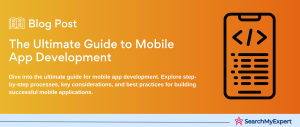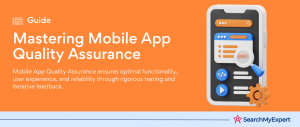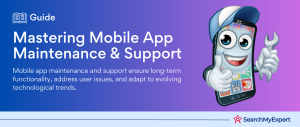In the ever-evolving world of healthcare, developing a healthcare app that stands out and makes a difference is a significant challenge. The healthcare industry has witnessed a surge in innovation, driven by a desire to address the shortcomings of the healthcare system in the USA. Patients frustrated with exorbitant bills, limited access to essential health data, long waiting times for consultations, and overburdened healthcare professionals are taking matters into their own hands by creating healthcare apps. However, the road to success is not guaranteed. Currently, only 2% of these healthcare apps are being actively used by patients. To ensure your healthcare app achieves its intended purpose, follow these six critical steps.
Define Your Healthcare App’s Purpose
Before diving into development, it’s crucial to define the purpose of your healthcare app. With numerous possibilities, ranging from diagnosis chatbots to wearable features, it’s easy to get overwhelmed. To find your niche, familiarize yourself with different types of healthcare apps:
Clinical Assistance Apps
These apps provide access to Electronic Medical Records (EMR) and Electronic Health Records (EHR), enabling healthcare professionals to review patient charts, laboratory results, and even offer remote diagnoses.
Scheduling and Reminder Apps
Designed to streamline appointment scheduling and send reminders to patients, these apps enhance efficiency for healthcare providers.
Telehealth and Remote Monitoring Apps
These apps facilitate the remote transmission of patient data, allowing practitioners to monitor vital signs and health conditions from a distance. Security is paramount for these apps due to the sensitive nature of patient data.
Medical Resource and Education Apps
For medical practitioners and students, these apps provide access to clinical references, study guides, and educational materials.
Health and Lifestyle Apps
These apps cater to consumers interested in monitoring their health and fitness. They may include features for tracking diet, fitness, or mental well-being.
Consider where your app fits in and which function will serve your target audience best.
Identify Essential Functions
Once you’ve determined the type of healthcare app you want to build, narrow down the essential functions. For instance, clinical assistance or lifestyle apps might benefit from dashboards, reporting, and charting functions. On the other hand, medical resource apps may prioritize doctor profiles and geolocation services. Understanding your users’ needs is crucial in this step.
Prioritize Privacy and Compliance
Privacy is a top concern in healthcare app development. Your app must comply with regulations like the Health Insurance Portability and Accountability Act (HIPAA) to ensure patient data protection. Consider the following measures:
- Weigh the security pros and cons between iOS and Android.
- Implement user authentication mechanisms.
- Create a clear and accessible privacy policy.
- Enable encryption on mobile devices.
- Regularly update your app to prevent security breaches.
These steps will bolster the trust of your patient-users.
Choose Supported Platforms and Devices
Selecting the right platforms and devices for your healthcare app is crucial. Mobile devices, such as smartphones and tablets, offer quick accessibility, while desktop devices cater to users conducting in-depth research. Assess your target audience’s preferences to determine whether to build for iOS, Android, or both.
Craft an Accessible UI/UX Design
Effective user interface (UI) and user experience (UX) design are essential for healthcare apps. Given the vulnerability of users relying on these apps, prioritize:
- Consistency in the user pathway.
- User-centric design to minimize pain points.
- Early delivery of critical health information.
- A clean and intuitive graphic design.
Remember, exceptional UI/UX design ensures your app effectively serves patients in their health journey.
Code Your App Effectively
Coding your healthcare app is the final step. Whether you’re a developer or outsourcing the work, ensure your development team has the required skills and experience. Ask pertinent questions to gauge their expertise:
- Have you built HIPAA-compliant apps before?
- Are you experienced in integrating with Electronic Health Records (EHR/EMR) systems?
- Do you have expertise in using Apple Healthkit?
- What app features does your team specialize in?
The quality of your code will determine your app’s success.
Continuous Improvement and User Feedback
The journey of developing a healthcare app doesn’t end with its launch. Continuous improvement is key to keeping your app relevant and user-friendly. Encourage user feedback and actively listen to your users. This feedback can lead to valuable insights that help you make necessary updates and enhancements.
Consider implementing features that allow users to report issues, suggest improvements, or provide testimonials. Regularly analyze user data to identify areas where your app can be fine-tuned for better performance and user satisfaction.
Marketing and Promotion
Building a remarkable healthcare app is just the beginning; you must also ensure that it reaches its intended audience. Effective marketing and promotion are essential to gaining visibility and attracting users.
- Content Marketing: Create informative and engaging content that highlights the benefits and features of your app. Blog posts, videos, and infographics can help educate your target audience.
- Social Media: Utilize social media platforms to connect with potential users. Share success stories, user testimonials, and updates about your app’s features.
- App Store Optimization (ASO): Optimize your app’s listing on app stores with keyword-rich descriptions, appealing screenshots, and user-friendly titles. This can significantly impact your app’s discoverability.
- Partnerships: Collaborate with healthcare professionals, organizations, or influencers in the industry to promote your app. Their endorsement can boost your app’s credibility.
Data Security and Compliance
Maintaining a high level of data security and compliance is an ongoing commitment. Regularly review and update your security measures to stay ahead of evolving threats. Conduct regular audits to ensure your app continues to meet regulatory requirements, especially if there are changes in healthcare legislation.
User Education and Support
To ensure users get the most out of your healthcare app, provide comprehensive user education and support. Create user guides, FAQs, and tutorials to help users navigate your app effectively. Establish a responsive support system, such as a helpdesk or chat support, to address user inquiries and issues promptly.
Monitor and Analyze Metrics
Monitoring and analyzing key performance metrics is crucial for evaluating your app’s success. Keep an eye on user engagement, retention rates, and conversion metrics. Identify trends and patterns that can inform your ongoing development efforts.
Use analytics tools to gain insights into user behavior within your app. This data can guide you in making data-driven decisions to improve user experiences and app functionality.
Adapt to Technological Advancements
The healthcare technology landscape is constantly evolving. Stay up-to-date with emerging technologies and trends in healthcare, such as telemedicine, wearables, and AI. Be prepared to adapt your app to incorporate new features and integrations that align with industry advancements.
In conclusion, developing a healthcare app that excels requires a holistic approach, encompassing planning, development, user privacy, ongoing improvement, marketing, and adaptability. By following these twelve steps, you can create an app that not only meets your users’ needs but also contributes positively to the healthcare industry, ultimately improving the lives of patients and healthcare professionals alike.
Discover Brilliance with the best App Development Companies out there.
Table of Contents
Toggle






